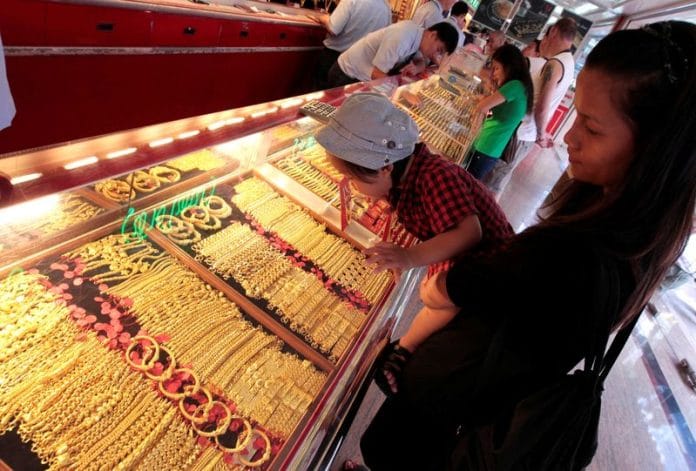By Rajendra Jadhav and Swati Verma
(Reuters) – Discounts on physical gold were highest in seven weeks in India as sturdy domestic rates restricted purchases, while premiums in China swung higher this week on some demand optimism flowing from the country’s policy measures to support the economy.
In top consumer China, premiums climbed to as high as $55 an ounce over global spot prices this week, traders said, from $20-$38 last week.
The policy-measures to support the economy are expected boost physical gold demand, said Peter Fung, head of dealing at Wing Fung Precious Metals.
Official data on Thursday also showed that the People’s Bank of China increased its gold holdings to 69.62 million fine troy ounces at end-August.
“China has been consistently adding to its gold reserves for the past 10 months, as part of its efforts to diversify away from the U.S. dollar,” said Bernard Sin, regional director, Greater China, at MKS PAMP.
Sin highlighted that while China has implemented a series of policy measures to revive the slowing economy, there is no indication of the PBoC issuing a gold import quota.
In India, dealers were offering a discount of up to $5 an ounce over official domestic prices — inclusive of the 15% import and 3% sales levies, up from the last week’s discount of $4.
“Demand is highly price sensitive. Buyers pause as soon as prices increase,” said Harshad Ajmera, proprietor of JJ Gold House, a wholesaler in Kolkata.
Local gold prices were trading around 59,200 rupees per 10 grams on Friday, up nearly 2% in three weeks.
Traders sold bullion at premiums of $0.50-$3.50 in Hong Kong and between $1.20 and $3 in Singapore.
In Japan, where domestic gold rates were trading at record levels this week, dealers charged $0.5 premiums.
A Tokyo-based trader said that it is “surprising” that local investors are buying gold at these high levels.
(Reporting by Deep Vakil, Anushree Mukherjee and Swati Verma in Bengaluru, Rajendra Jadhav in Mumbai; Editing by Maju Samuel)
Disclaimer: This report is auto generated from the Reuters news service. ThePrint holds no responsibilty for its content.






